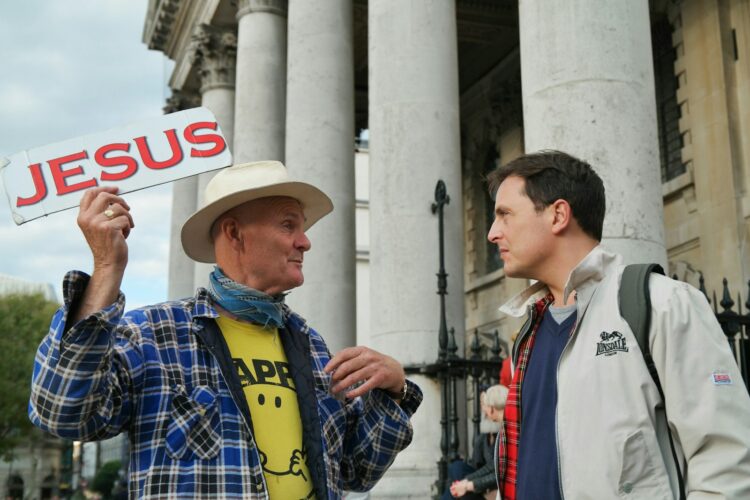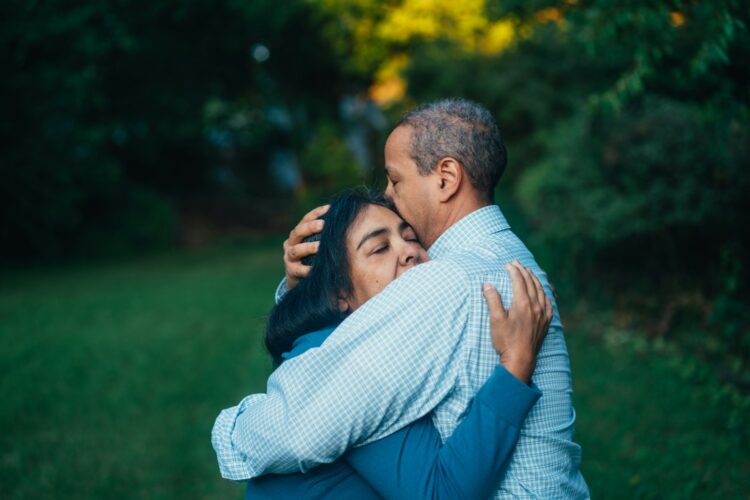
The world Jesus walked wasn’t that different from ours—people rushed, worried, compared, and tried to make sense of their lives. His lessons weren’t given for the perfect or the powerful. They were for tired people trying to do good in ordinary places. Two thousand years later, those same teachings still slip quietly into modern life. They shape how we love, forgive, and begin again. They don’t ask for grandeur—just gentleness.
Love Your Neighbor

It’s the simplest rule and the hardest to follow. Love isn’t just warmth—it’s patience when you’re frustrated, kindness when no one’s watching, and compassion for people you don’t understand. Loving your neighbor today might mean listening instead of arguing, giving space instead of advice, or refusing to speak harshly about someone you barely know. Jesus didn’t say “love the people who make it easy.” He said love your neighbor—because that’s where love becomes real.
Do Not Worry About Tomorrow

Anxiety has always existed, even before calendars and deadlines. Jesus reminded His listeners that worry adds nothing—neither time nor peace. The lilies grow without effort, and the birds still find their food. In modern life, this lesson looks like taking a breath before scrolling headlines, like trusting that tomorrow’s strength will arrive when it’s needed. You don’t need to have everything figured out today. Let grace handle what your control can’t.
Forgive Seventy Times Seven

Forgiveness isn’t a number; it’s a rhythm. It means choosing to loosen your grip on anger again and again until it doesn’t pull you down anymore. You don’t have to reconcile with every person who’s hurt you—but you can release their hold on your heart. Forgiveness doesn’t erase the past; it frees the future. The more you practice it, the lighter life feels.
Blessed Are the Peacemakers

Peacemaking is quiet work. It’s walking away from an argument when winning would feel worse than silence. It’s softening your tone when others raise theirs. Sometimes it’s saying nothing at all. Peace doesn’t mean avoiding conflict—it means bringing calm into it. Jesus valued those who build bridges instead of walls, because the world doesn’t need more noise. It needs people who can keep their hearts steady while others lose theirs.
Let Your Yes Be Yes

In a world of disclaimers and half-promises, clarity is rare. Jesus taught that truth shouldn’t need decoration. A sincere yes or no builds trust faster than any long explanation. When you live honestly—saying only what you mean—people start to rest around you. Your word becomes a weight they can lean on. It’s a quiet form of integrity that doesn’t need applause.
The First Shall Be Last

This lesson turns every power structure upside down. Jesus praised humility in a culture obsessed with position. Today, it still matters—being willing to serve without being seen, to give credit away, to help without needing recognition. True strength doesn’t announce itself. It lifts others quietly. In homes, offices, and daily routines, this teaching reminds us that greatness isn’t about rising above—it’s about kneeling with grace.
Do Unto Others

The Golden Rule remains the most enduring filter for human behavior. Before reacting, pause and ask: Would I want this done to me? In relationships, work, and even traffic, it changes the air instantly. Treating people with the kindness you hope for yourself is how small moments stay sacred. Jesus didn’t need to explain morality in long sermons—He gave it in one sentence that still guides everything worth doing.
Ask, and You Shall Receive

This was never about wishing. It’s about courage. Asking means admitting need—something pride often resists. Sometimes the answer arrives in unexpected forms: help from a friend, a new direction, or a quiet moment of peace when you needed strength. The point isn’t the getting; it’s the trusting. When you finally speak what your heart’s been holding, heaven listens.
Let the Little Children Come

Children were often ignored in His time, but Jesus made space for them. Their laughter, wonder, and honesty reflected the kind of faith He wanted everyone to have. It wasn’t about innocence—it was about trust. When you stop overcomplicating life and allow yourself to be amazed again, you come closer to that kind of faith. Every time you laugh freely, forgive quickly, or believe good things can happen, you’re living that verse.
Judge Not

Judgment builds walls faster than any brick. Jesus didn’t ignore wrongdoing, but He looked at the person behind it. He saw potential instead of condemnation. We still need that today—on screens, in conversations, in the quiet opinions we keep to ourselves. You never know the weight someone carries. The moment you choose understanding over judgment, mercy begins to heal something in both of you.
Store Up Treasures in Heaven

It’s easy to chase things that rust—titles, possessions, the illusion of success. Jesus pointed toward what lasts: generosity, integrity, love. “Treasure in heaven” wasn’t about the afterlife—it was about what endures beyond the paycheck or the praise. The work you do with compassion will outlive anything you own. That’s the wealth no market can measure.
Where Two or Three Are Gathered

He didn’t define faith by buildings or ceremonies but by connection. When people gather with care and honesty, even over coffee or in a kitchen, something sacred happens. Prayer doesn’t need stained glass to work. Sometimes it looks like two friends talking through grief, or a family sitting in quiet gratitude before dinner. Wherever love shows up, He said, so does He.
Take the Log Out of Your Own Eye

It’s one of His most practical bits of humor—how can you correct someone’s speck when you’ve got a whole beam in yours? It’s funny because it’s true. We’re quicker to notice flaws in others than growth in ourselves. The moment you turn that awareness inward, humility takes root. Self-examination isn’t shame—it’s honesty that leads to gentler love.
Let Your Light Shine

He never said, Be the biggest light. Just, let it shine. Don’t hide goodness for fear of being judged or misunderstood. Small lights matter—the steady kindness, the quiet faithfulness, the calm in chaos. Your presence can change the temperature of a room without you even knowing it. The world doesn’t need louder people; it needs brighter ones.
Love Your Enemies

The hardest of all, and the one that still saves hearts from bitterness. Jesus wasn’t asking for naivety—He was offering freedom. Hatred is heavy; love lightens it. To love an enemy is to refuse to let their actions define your peace. It’s strength in its purest form, because it costs something every time. Love them anyway—that’s where the miracle begins.

